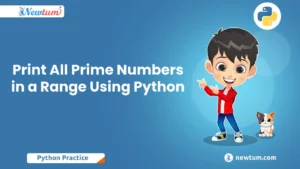Relational operators in C play a crucial role in decision-making within your code. Whether you’re comparing variables, evaluating conditions, or controlling program flow, these operators are essential. Misunderstanding them can lead to buggy logic and flawed outcomes. Dive in, grasp these concepts, and enhance your coding skills! Stay tuned.
What Are Relational Operators in C?
Relational operators in C are special symbols used to compare two values or expressions. They help programmers make decisions by evaluating conditions and returning whether the comparison is true or false. These operators are commonly used in conditional statements like if, while, and for loops.
List of Relational operators in C
C provides six relational operators:
| Operator | Meaning | Example (a = 5, b = 3) | Result |
|---|---|---|---|
== | Equal to | a == b | False |
!= | Not equal to | a != b | True |
< | Less than | a < b | False |
> | Greater than | a > b | True |
<= | Less than or equal to | a <= b | False |
>= | Greater than or equal to | a >= b | True |
Return Values
- Each relational operator produces a Boolean result:
1(true) if the condition holds.0(false) if the condition does not hold.
- Although C doesn’t have a native
booldata type in its original standard (introduced later in C99), integers (0= false, non-zero = true) are used to represent Boolean values.
Syntax and Usage
Basic Syntax in Conditional Statements
Relational operators in C are usually used inside conditions of control structures like if or loops.
if (condition) {
// code to execute if condition is true
}
Example
#include <stdio.h>
int main() {
int a = 10, b = 5;
if (a > b) {
printf("a is greater than b\n");
}
return 0;
}
Explanation of the Example
- Here,
ais assigned the value10andbis assigned the value5. - The condition
(a > b)checks if10is greater than5. - Since this condition is true, the program executes the code inside the
ifblock and prints:
a is greater than bPractical Examples of Relational Operators in C
Relational operators in C are most commonly used in decision-making and loops. Let’s walk through a few practical cases:
1. Comparing Integers
A simple program to compare two integers:
#include <stdio.h>
int main() {
int x = 15, y = 20;
if (x < y) {
printf("x is less than y\n");
} else {
printf("x is greater than or equal to y\n");
}
return 0;
}
Explanation:
- The expression
x < yevaluates to true because15 < 20. - Hence, the output will be:
x is less than y
2. Using Relational Operators in Loops
Relational operators play a crucial role in controlling loops:
#include <stdio.h>
int main() {
for (int i = 1; i <= 5; i++) {
printf("%d ", i);
}
return 0;
}
Explanation:
- The condition
i <= 5uses a relational operator. - As long as the condition is true, the loop continues running.
- Output:
1 2 3 4 5
3. Nested Conditions with Multiple Relational Operators
You can also use relational operators with logical operators to create complex conditions:
#include <stdio.h>
int main() {
int marks = 78;
if (marks >= 50 && marks < 60) {
printf("Grade: C\n");
} else if (marks >= 60 && marks < 80) {
printf("Grade: B\n");
} else if (marks >= 80) {
printf("Grade: A\n");
} else {
printf("Fail\n");
}
return 0;
}
Explanation:
- Multiple relational operators (
>=,<) are combined with logical&&(AND). - Since
marks = 78, it falls in the60 <= marks < 80range, so the program prints:Grade: B
Best Practices for Using Relational Operators in C
While Relational operators in C are straightforward, a few best practices will help you avoid mistakes and write cleaner code.
1. Avoiding Common Pitfalls
- Mistaking
=for==:=is the assignment operator, while==is the equality operator.- Writing
if (x = 5)assigns 5 toxinstead of comparing it, which is a common beginner’s error.
✅ Use if (x == 5) when you want to check equality.
2. Importance of Parentheses for Clarity
- Complex conditions can get confusing. Use parentheses to make your logic clear.
Example:
if ((a > b) && (b > c)) {
printf("a is the largest\n");
}
Without parentheses, operator precedence might lead to unexpected results.
3. Combining Relational Operators with Logical Operators
- Relational operators work best when paired with logical operators like
&&(AND),||(OR), and!(NOT). - This allows you to check multiple conditions at once.
Example:
if ((age >= 18) && (age <= 60)) {
printf("Eligible\n");
}
Here, the person must be at least 18 and at most 60 to be considered eligible.
👉 By keeping these practices in mind, you’ll avoid common bugs and write more reliable conditional logic in C.
Real-Life Uses of Relational Operators in C
- Google: Data Filtering
Google might use relational operators to filter data results. For example, when you’re searching for a specific range of dates, Google uses relational operators to get the right results.int date = 2022;
if (date >= 2020 && date <= 2023) {
printf("Date within range
");
}
Output:
“Date within range” - Amazon: Pricing Comparisons
Amazon could utilize relational operators to compare product prices to offer the best deals. If a product’s price on a particular website is less than or equal to Amazon’s in-house price logic, it may recommend price adjustments.float productPrice = 19.99;
float thresholdPrice = 20.00;
if (productPrice <= thresholdPrice) {
printf("Consider for discount promotion
");
}
Output:
“Consider for discount promotion” - Facebook: Age Restrictions
Facebook may use relational operators to validate a user’s age for access or content visibility. Relational operators ensure users meet minimum age requirements for certain feature access or content visibility.int userAge = 16;
if (userAge >= 13) {
printf("User eligible for account
");
}
Output:
“User eligible for account”
Interview Questions on C
Here are some almost-untapped FAQ ideas (questions that appear in forums like Reddit/Quora but are not well or fully answered elsewhere) about relational operators in C / conditional logic, along with suggested answers:
1. Can you chain relational operators in C like a < b < c, and what does it mean exactly?
Many beginners try if (a < b < c) expecting it to test “a less than b and b less than c,” but the behavior is surprising.
Answer (brief):
- In C, relational operators are not chainable in the intuitive mathematical sense.
- The expression
a < b < cis parsed as(a < b) < c. - First
(a < b)is evaluated, which yields0or1. Then that result is compared toc. - That leads to unintended logic.
- Instead, use
if (a < b && b < c).
This is a question that often comes up in learning forums but many tutorials only mention “you can’t chain them” without explaining the step-by-step evaluation.
2. Why do relational operators sometimes work differently (or unexpectedly) when comparing floats/doubles?
People often test if (x == y) for floating-point numbers and get surprising results.
Answer (brief):
- Floating point numbers have rounding/precision errors in representation.
- Two values that are mathematically equal may not be bitwise identical in memory, so
==may fail. - Instead, use a small epsilon tolerance, e.g.:
if (fabs(x - y) < EPSILON) { … } - Also, inequalities (
<,>) are more robust but still risk edge cases near precision limits.
This question is common but many basic tutorials don’t fully highlight pitfalls and safe workarounds.
3. Can relational operators compare non-numeric types in C (e.g. strings, pointers)?
People often wonder: can ==, <, > etc. work for strings or pointers.
Answer (brief):
- You cannot reliably compare C-style strings (char arrays) using
==or<— that compares addresses, not content. Usestrcmp()orstrncmp(). - You can compare pointers (addresses) with
<,>, etc., but only if they point into the same array (pointer comparison outside that leads to undefined behavior). - Comparing pointers from unrelated arrays with
<or>is undefined by the standard.
This nuance is often glossed over or incorrectly explained in otherwise “complete” C tutorials.
4. What is the exact precedence and associativity of relational operators relative to logical and arithmetic operators?
Many sources mention “relational operators have higher precedence than logical operators,” but few show a full, correct table or real examples.
Answer (brief):
- Arithmetic operators (e.g.
+,-,*,/) bind tighter than relational operators. - Relational operators come next.
- Logical operators (
&&,||) have lower precedence than relational. - All relational operators share the same precedence and are left associative.
- Example nuance:
a + b < c && d == eis parsed as( (a + b) < c ) && (d == e) - Also, associativity ensures
a < b < cis parsed as(a < b) < c.
Many existing blogs mention the order but don’t illustrate how an expression may be reinterpreted in actual code.
5. Does relational operator evaluation guarantee short-circuiting in C?
Beginners sometimes believe relational operators themselves short-circuit, but the truth is more subtle.
Answer (brief):
- Relational operators (
<,>,<=,>=,==,!=) do not short-circuit — they evaluate both operands fully (unless the compiler optimizes otherwise). - Logical operators
&&and||do short-circuit: inA && B, ifAis false,Bis not evaluated; inA || B, ifAis true,Bis not evaluated. - So be careful: when combining relational operators with logical ones, the short-circuit behavior is from the logical operators, not the relational ones.
This misconception is often unaddressed or incorrectly stated in many tutorials.
Our AI-powered C compiler revolutionises coding! Instantly write, run, and test your code with unparalleled efficiency and ease. Experience seamless integration and speedy execution. Check out our C online compiler for a smoother, smarter coding journey. Embrace the future of programming today!
Conclusion
Relational operators in C are a crucial part of programming that allow you to compare variables and expressions, forming the backbone of decision-making in code. By mastering these operators, you not only sharpen your logical thinking but also gain confidence in coding. Ready to dive deeper? Explore programming languages like Java, Python, C++, and more at Newtum for further learning opportunities.
Edited and Compiled by
This article was compiled and edited by @rasikadeshpande, who has over 4 years of experience in writing. She’s passionate about helping beginners understand technical topics in a more interactive way.



